Readings, Questions and Activities For A Second COVID-19 Seder
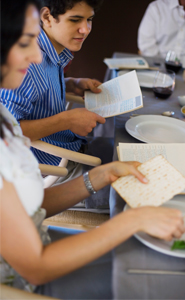
Passover begins at sundown on Saturday, March 27 and for the second year in a row, we will celebrate during a pandemic. How can we incorporate what we’ve been going through the past year with the themes of the Seder? What creative ideas should we add to engage our family at home and if using, on Zoom? We asked some rabbis and educational experts around town for their suggestions.
Rabbi Chai Posner, Beth Tfiloh Congregation
The Mishna teaches us that when we sit at the seder we must truly feel that we were slaves, and now we are free. After the year we have just experienced, we can all appreciate this even more deeply than usual. The Seder plays out these emotions through the mitzvot of the evening. Perhaps by paying close attention to these ancient traditions we can find relevant meaning for freedom today. Here are four questions to discuss for the four mitzvot of the evening:
- Matzah – the bread of slavery AND ALSO the bread of redemption
What symbols or events of the past showed us that the very same object can bring slavery and freedom? - Maror – the bitterness is dipped into just a little bit of sweet charoset
What sweetness did you find in the bitterness of the past year? - Four cups of wine – representing four languages of redemption … a reminder that freedom is a process, perhaps different for each of us.
What is holding you back from feeling free? - Magid/telling the story – acknowledging what we’ve been through and showing gratitude for the miracles along the way.
What personal story can you tell that shows your gratitude?
Lauren Klein, Funder Services for The Associated
Whether we get together this year in person or via Zoom, Passover is a time to spend with family and an opportunity to talk about what matters to you. Over the past year, we all have had time to think about what is truly important, and when we read the Four Questions during the Seder it is the perfect time to add four new questions this year:
- What are three things you are grateful for?
- What motivates you to give?
- How have you given back this year with your time and/or money?
- What is one problem you wish you could solve?
Eli Bass, Macks CJE Education Coordinator
Here are a few family suggestions:
- Decorate the room, create skits, involve a tradition from Passover around the world try a new recipe to add new flavor to your Passover experience, consider taking out a cookbook from our collection with available curbside pickup.
- Find a great Passover Haggadah. We suggest Richard Codor’s Joyous Haggadah, Seder Talk: The Conversational Haggada, PJ Library Haggadah or we have over 140 different options in our library collection available for curbside pickup.
- This year has been different. Here is a great guide for facilitating a meaningful technology-based zoom seder focused on themes of this year. Inside are great questions to ask kids to help process Passover themes in relationship to this challenging year. This is easy to adapt to in-person seder as well.
Check out Eli’s blog, A Passover Like No Other
Jennifer Weiner, Interim Senior Rabbi, Har Sinai – Oheb Shalom
Seder is about family and community. Here are a few things to discuss at your seder this year:
- Talk about family memories and tell stories about how Bubbe and Zayde or Grandma and Grandpa used to celebrate. Then create a new tradition that you plan to initiate and have at your seder for years to come. Do an art project about a Passover theme at the table.
- Hold seder in your living room by setting up a tent or a pillow fort and pretend you are in the desert.
- Short and succinct is better. Highlight what aspects of the seder are truly important. It is not about what we are missing but what we have.
- Ask the questions: “What is different about tonight? What makes this Passover like those in the past?
- Create community online. Start the seder at a convenient time for your family and/or yourself and remember you may have seder with loved ones living all around the world!
- Use a Haggadah you might not have used before. Or Write your own.
Add These Two Readings from Pearlstone to your Seder
Beitzah – The Roasted Egg On Your Seder Plate Takes On A Deeper Meaning This Year
By Stern Christian, Pearlstone Lead Educator
Traditionally, the egg reminds us of a holiday sacrifice offering and represents mourning, rebirth and the continuity of life. It also symbolizes the springtime renewal of Passover. This year, the ritual of roasting the egg can honor the sacrifice of health care professionals and other essential workers who have put their lives on the line to serve, protect, and heal others throughout the pandemic. Consider roasting the egg a bit more than you typically do; the resulting visual contrast can provide a striking reminder of the pain and loss, while symbolizing life and gratitude underneath.
Our hearts ache knowing what frontline workers have endured this past year, and our hearts are full of gratitude for their sacrifice and commitment to serve. We mourn the loss of over half a million American lives, and we rejoice in the birth of millions of new lives. To fully address hunger, food insecurity, and food apartheid will require us all working as a collective, and in the meantime we at Pearlstone are energized to have contributed to Emergency Crisis Response efforts in Baltimore by providing meals and fresh produce to neighbors in need. We fear the repercussions of a fragmented school year during a phase of academic development critical for young minds, and we are inspired by the hundreds of youth who have experienced the power of nature connection on the Pearlstone Campus.
The duality of pain and loss in contrast with deep gratitude and blessings of new life are as relevant today as they were in the days of the Temple. Take a few extra moments during this portion of the seder to recognize and reflect on this theme.
Resiliency – Overcoming Adversity Through Collective Action
By Clara Feigelson, Pearlstone Program Coordinator
As Jews, we have faced hardship many times throughout history. Our ability to persevere rises from the strength of community coming together. There are multiple elements of the Passover story that remain relevant to this day. During the exodus, Jewish people had to overcome hardships of enslavement, migration, and constant unknowns. The collective force of the community provided the strength to make it out of Egypt and survive the passage through the harsh desert to the land of milk and honey.
The past year has been one of many hardships for many people. Many prevailing challenges we face as a society today resonate with themes in the story of Passover: climate change threatening our planet; homelessness and lack of access to education and basic welfare needs; racial injustice towards Black, Brown, Native, and Asian peoples; detention centers for immigrants and asylum seekers. The Covid-19 pandemic only exacerbated these existing issues, leading to social isolation, racial and political violence, a surge in unemployment and evictions, threats to our safety and wellbeing, inequitable access to healthcare and education for marginalized demographics including people of color, immigrants, people with disabilities, and those living in poverty.
As a society, we can and should support each other through hardships. Advocating for and helping one another is one of many ways we have always managed through crises as a Jewish people. In the blessing of freedom from slavery, we recognize our responsibility to work for the freedom and social justice of all people, everywhere. Just as others have done for us, as Jews we must come together as a community to care for and protect one another so we can all make it through whatever hardships we face.
Subscribe to our newsletter
The Associated is a home for everyone in the Baltimore Jewish community. We offer several email lists to help people find a community, engage with their peers and support Jewish journeys around the world.
Join Our Mailing ListAdd Impact to Your Inbox
Sign up for our newsletter
Subscribe to our newsletter
The Associated is a home for everyone in the Baltimore Jewish community. We offer several email lists to help people find a community, engage with their peers and support Jewish journeys around the world.
Join Our Mailing List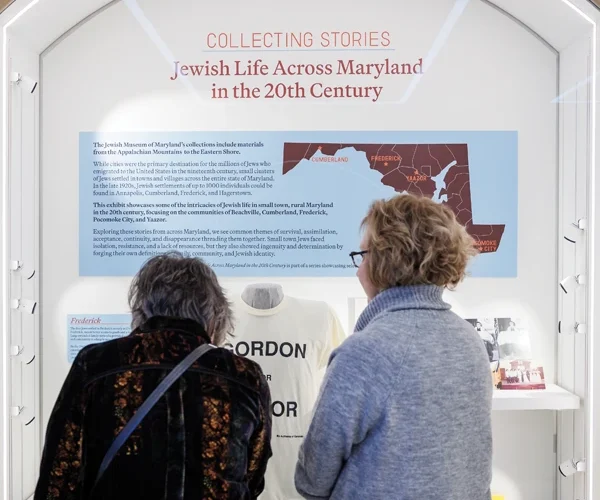
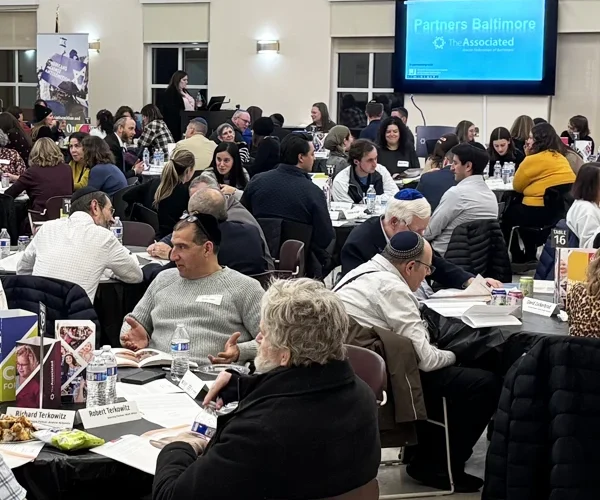
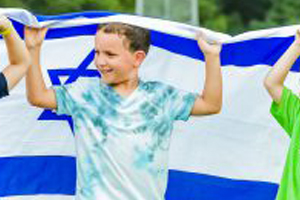

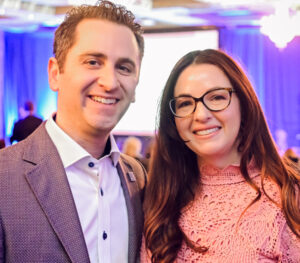
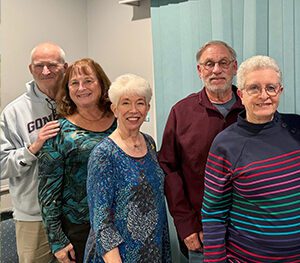

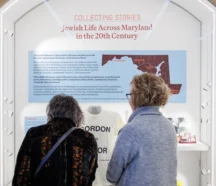
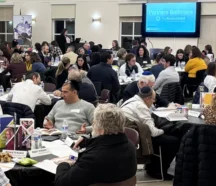

 Please Wait while we loading your video.
Please Wait while we loading your video.